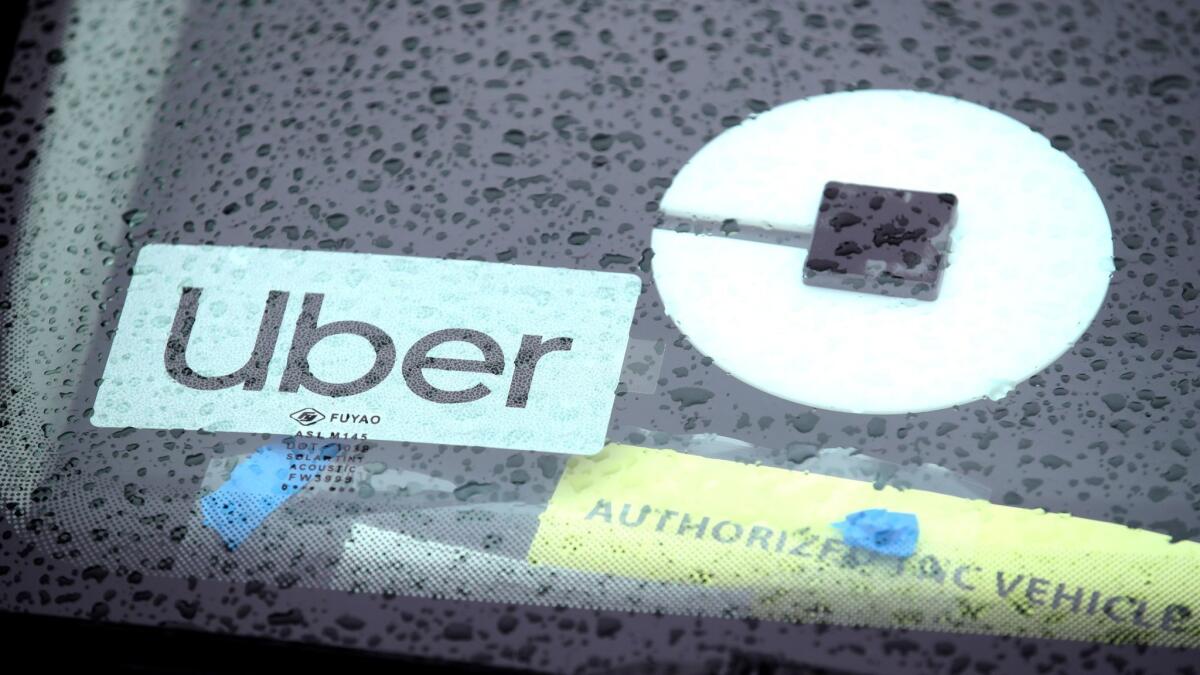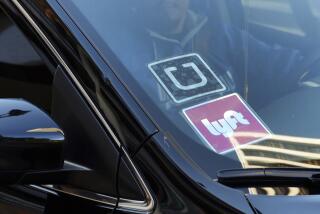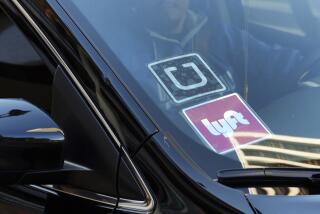Uber will bring a long list of legal risks to its IPO

No company in recent history has come to the public markets under more of a legal shadow than Uber.
In the coming weeks, documents will be made public for a stock market listing that could value the ride-hailing app company at more than $100 billion.
But those documents will include lengthy disclosures on its pending lawsuits and government investigations, including any lingering issues dating back to its days under hard-charging former CEO Travis Kalanick, said lawyers and corporate governance experts.
“With Uber, given their previous CEO and history, there are more risk factors” than with other companies, said Jay Ritter, an expert in initial public offerings at the University of Florida.
At the top of that list of risk factors is the very structure of Uber’s business, which relies on a workforce of drivers whom the company does not consider employees — thereby skirting regulations governing pay and benefits.
That has kept labor costs down for Uber and its peers in the gig economy, but it has set off legal claims from workers who want better terms and invited scrutiny from regulators around the world.
“I can’t think of a bigger risk to them than the idea that these people will become employees,” said John Coffee, a securities law expert at Columbia University in New York.
Uber declined to comment.
In March, Uber agreed to pay $20 million to settle a long-running fight with drivers in California and Massachusetts who were pushing to be considered employees. The company will continue to consider them independent contractors but says it will make some changes to how it removes drivers from its platform, and it will allow appeals against removal.
But worker classification, among other issues about its business model, is a battle the company is fighting in several states.
An April 2018 ruling by the California Supreme Court assumes workers are employees if their jobs are central to a company’s business.
Are you an employee or a contractor? Carpenters, strippers and dog walkers now face that question »
Legislation is pending in Sacramento to codify the court ruling, and its author has said it won’t exclude Uber or Lyft.
“The Securities and Exchange Commission may require additional disclosures or warnings,” said Coffee. Uber “may have to say, ‘What would be the costs to us next year if every one of our drivers is classified as an employee?’ That figure could be unpleasant.”
In Europe, the app’s low-cost UberPop service, which allowed amateur drivers to pick up riders, has been banned in several countries. Last month, Uber settled an UberPop case, over having offered an unlicensed taxi service, in the Netherlands for $2.6 million.
Under its current chief executive, Dara Khosrowshahi, Uber has taken a more conciliatory approach to countries such as Germany, which it had largely abandoned in 2016 after regulators said it was operating an illegal taxi business. It is now expanding there again by partnering with licensed car services and taxi operators — a model it is also pursuing in Japan.
“As they enter new markets in the U.S. and everywhere else, they are always going to have to contend with regulatory issues of some sort,” said Carl Tobias, a law professor at the University of Richmond in Virginia. “The labor relationship won’t be settled for a long time.”
Khosrowshahi, who was appointed in August 2017 with a mandate to take Uber public, has worked hard to resolve several legal and regulatory hurdles.
Two years ago, Uber was struggling to deal with accusations of a sexist and toxic work environment, a social media campaign urging people to #deleteUber, an embarrassing video of Kalanick berating a driver, and a flood of executive departures.
It was also under mounting legal and regulatory pressure, including a lawsuit from Alphabet’s Waymo accusing it of stealing trade secrets and multiple federal investigations into issues including foreign bribery and software used to avoid government stings. Before the end of 2017, Uber would also disclose a massive data breach that it had failed to report for more than a year.
The cascading scandals generated boardroom drama, leading to Kalanick’s resignation in June 2017.
Khosrowshahi, a protégé of media tycoon Barry Diller, has made it his mission to repair Uber’s internal culture, image and relationships with regulators around the world. He overhauled the management team, installing a new chief financial officer, chief operating officer, general counsel and heads of marketing and human resources. The company also named a new independent chairman to its board.
Who is Uber’s pick for CEO, Dara Khosrowshahi? »
Much of the legal clean-up has fallen to Tony West, the general counsel Khosrowshahi hired from PepsiCo in late 2017. West’s wife, Maya Harris, advised Hillary Clinton’s presidential campaign and his sister-in-law Kamala Harris is the California senator running for U.S. president.
West was instrumental in resolving two issues that were internally seen as the biggest potential risks from a financial and strategic point of view: the Waymo lawsuit and liability for the 2016 data breach.
Uber settled with Waymo in February last year for $245 million in Uber stock, five days into a high-profile trial in which Kalanick took the stand.
In the case of the data breach — which Uber announced on West’s first day of work in November 2017 — the company agreed in September last year to pay a record $148-million penalty to all 50 U.S. states and the District of Columbia.
Uber has resolved several other lawsuits. It paid $10 million to settle pay-discrimination claims from hundreds of current and former employees, including $1.9 million earmarked for harassment allegations. In December it settled, for an undisclosed sum, a complaint brought by women who said they had been raped or otherwise assaulted by Uber drivers.
One area that investors will be looking for details on in Uber’s prospectus will be whether it remains the subject of investigations by the U.S. Justice Department or other government agencies. A spokesman said the Justice Department did not comment on or confirm the existence of ongoing investigations, and did not comment on previous investigations where no charges were filed.
“Not all investigations necessarily need to get disclosed,” said Reed Kathrein, an attorney at Hagens Berman Sobol Shapiro who has represented shareholders in complaints against Theranos, the scandal-ridden blood-testing group, and Tesla, the electric car company. “If it could have a material impact, it should be disclosed.”






